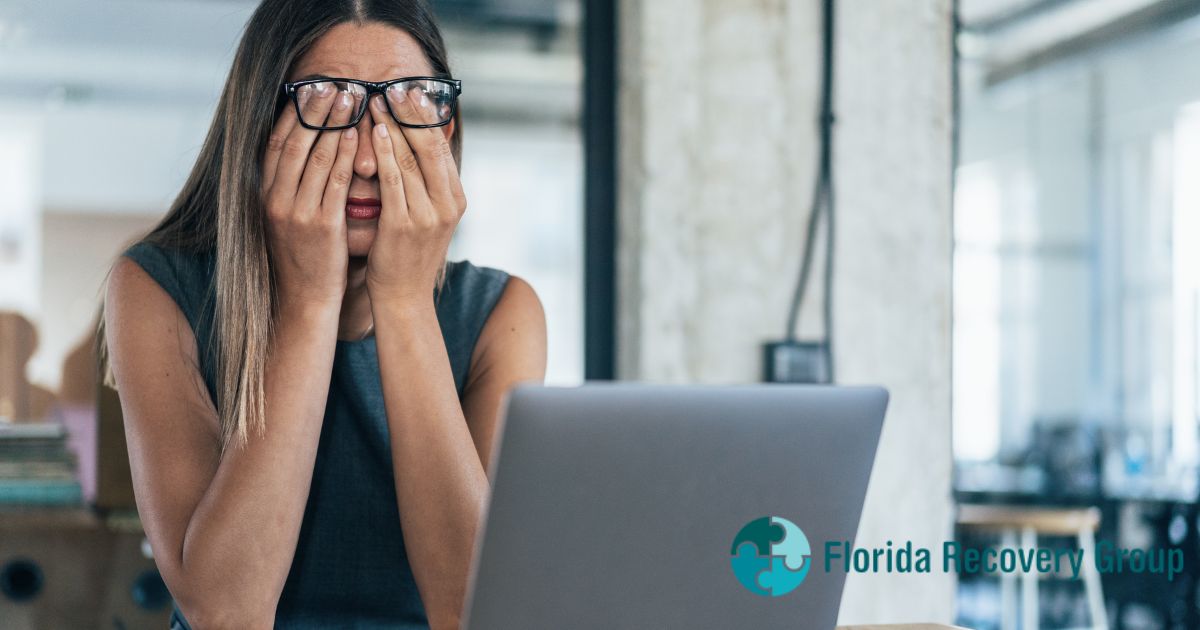
30 Nov What is HALT and What Does it Mean in Recovery?
Addiction is a chronic and progressive condition that must be continuously maintained to achieve long-lasting sobriety. Unfortunately, many people struggle with relapse, as the addiction relapse rate is currently between 40 to 60%.[1] Since relapse is so common, people in the addiction recovery community have begun getting creative with relapse prevention techniques.
If you are in recovery from addiction, you have probably heard someone talking about “HALT.” HALT is an acronym for hungry, angry, lonely, and tired. These are feelings that often lead people to relapse when they are not managing them effectively.
Using the acronym HALT makes people aware of the risks of allowing hunger, loneliness, anger, and tiredness to fester. Knowing that these feelings can lead to relapse, allows you to plan accordingly and have healthy coping mechanisms in your arsenal to use during times of need.
What Does HALT Stand For and How Does it Help You Avoid Relapse?
HALT is an acronym for hungry, angry, lonely, and tired. All of these emotions can cause someone to experience a relapse if they are not using the coping mechanisms they learned during addiction treatment.
H – Hungry
When your schedule is full of obligations like work, school, caring for children, or recovery meetings, skipping a meal is easy. Unfortunately, being hungry can cause significant mood changes, such as irritability or even fatigue. Additionally, not eating right can cause you to have poor decision-making skills, which may inch you closer to a relapse.
Making sure you eat a balanced meal on a regular schedule can prevent you from becoming irritable and fatigued and ensure that your decision-making skills remain sharp. If you have a busy schedule, you should always keep snacks that you can eat on the go in your purse or car.
A – Angry
Most people who struggled with addiction were using drugs or alcohol to cope with uncomfortable emotions like stress, depression, or anger. Unfortunately, substance abuse only creates a band-aid and those emotions will eventually come back, often worse than they were before.
Once you get sober you will experience a flood of emotions because you are no longer numbing them with substances. It is extremely common to deal with feelings of anger early in recovery. As a result, you should always be armed with healthy coping mechanisms to help you work through your anger effectively.
Examples of good ways to overcome anger without drugs or alcohol include journaling, venting to a friend, talking with a therapist, exercising, or listening to calming music.
L – Lonely
Feelings of loneliness can occur at any time. Maybe you lost a lot of friends when you got sober because they are still abusing substances. On the other hand, it is possible to feel lonely even when you are surrounded by people.
No matter the reason you are feeling lonely, it is important to know how to work through these feelings. Loneliness and isolation are extreme triggers for substance abuse, as relapsing can feel like returning to an old friend. Instead of succumbing to your addiction, consider using healthy coping mechanisms to work through your feelings of loneliness.
Examples of ways to combat loneliness include building a strong support network, avoiding isolating behaviors by making plans with friends, participating in activities you enjoy, and becoming comfortable sitting with yourself during times when you cannot hang out with others.
T – Tired
When you are physically and mentally tired, it becomes difficult to think clearly. Not only are your thinking skills clouded, but tiredness can make you feel irritable and even angry. When you are overworking or overscheduling your days, tiredness can quickly become exhaustion, which might make you consider using drugs or alcohol to cope.
Instead of trying to get everything done in one day, consider stretching out your activities throughout the week. Getting proper rest is extremely beneficial in recovery, as it keeps you from dealing with the consequences of exhaustion. Additionally, you should always schedule in time for self-care activities like engaging in your favorite hobby, watching TV shows, reading, meditation, or taking a relaxing bath.
Find Help for Drug and Alcohol Abuse
If you or a loved one struggles with drug addiction or alcoholism, it’s time to seek professional help. While HALT encompasses a lot of the emotions that can lead to relapse, tons of triggers can cause someone to return to substance abuse.
No matter your reasons for experiencing a relapse, Florida Recovery Group is here to help you get back on track. Our addiction treatment program focuses on evidence-based therapies, holistic treatments, and relapse prevention planning to ensure that you have a strong foundation of recovery to lean on.
To learn more about our empathetic and highly rated drug and alcohol rehab program, contact us today.
References:
- The National Institute on Drug Abuse (NIDA): The Science of Addiction Treatment and Recovery, Retrieved November 2023 From https://nida.nih.gov/publications/drugs-brains-behavior-science-addiction/treatment-recovery





